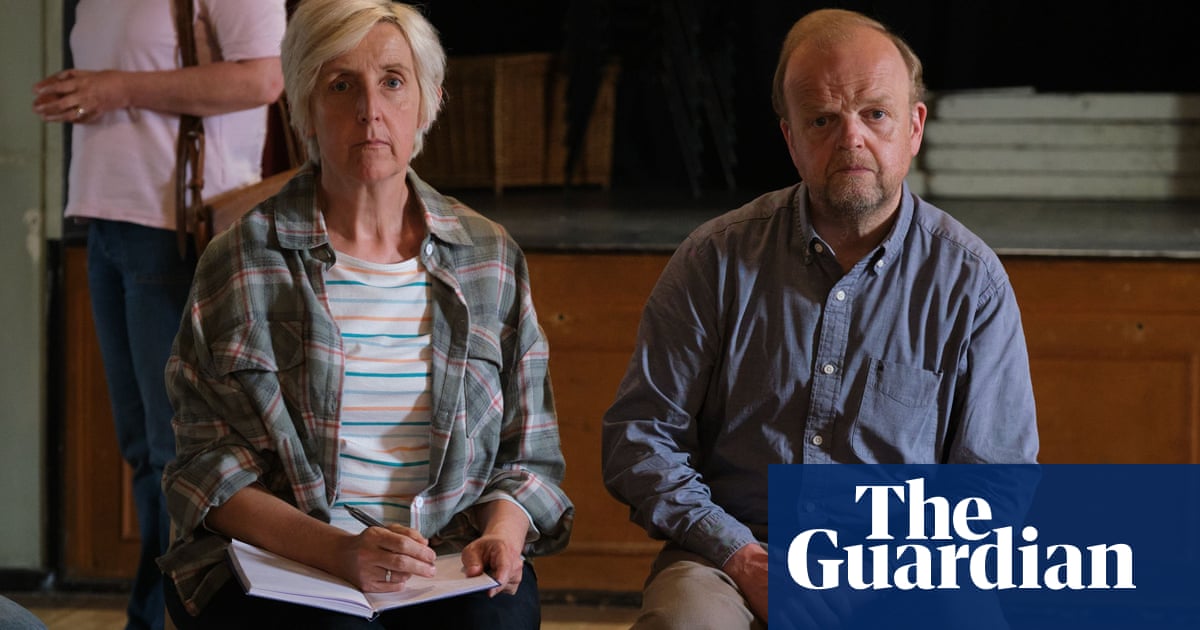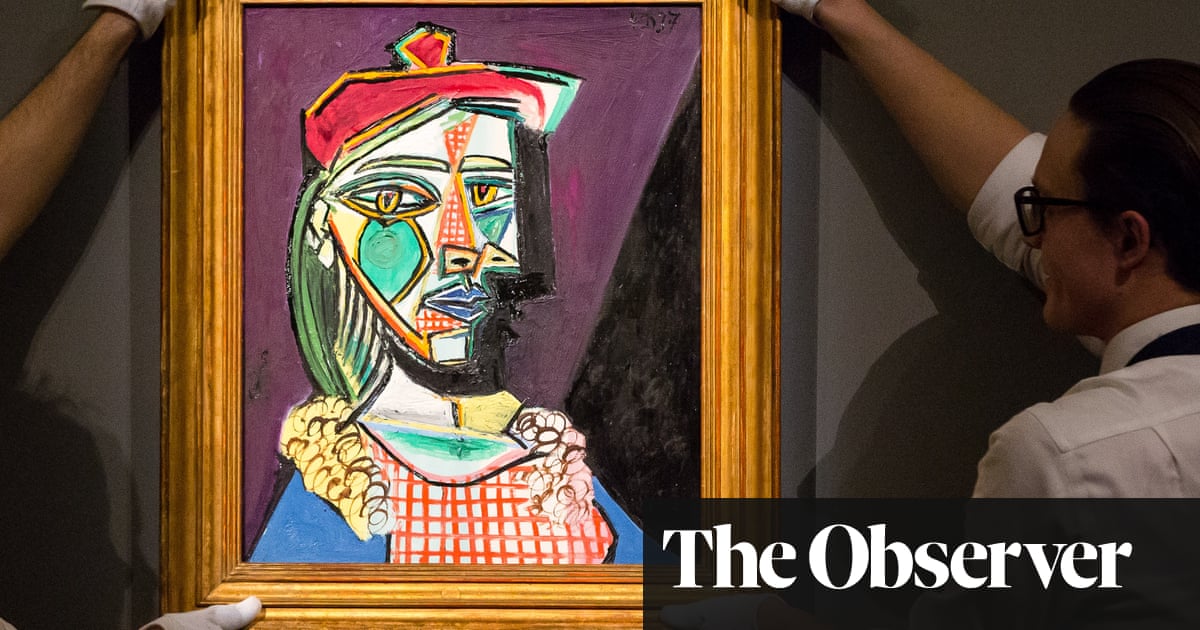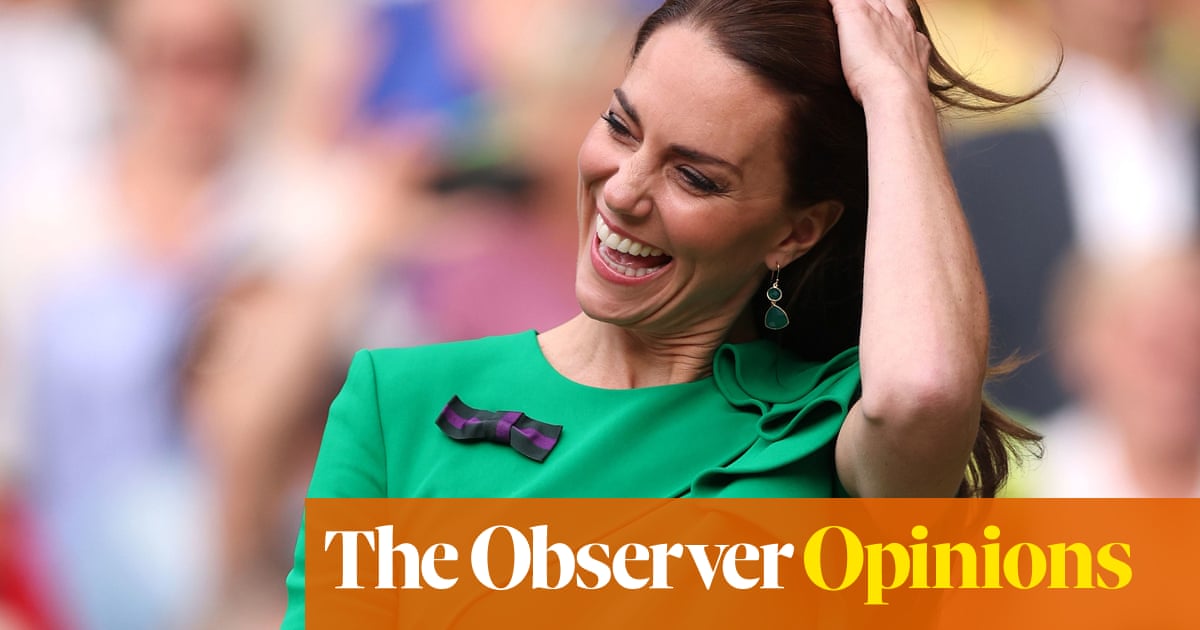
he story of modern royalty might go something like this: once upon a time, there was a beautiful woman who met a prince. They married, and everyone said it would bring the royal family into the future. The young boy who suffered after the terrible death of his mother seemed to have finally found happiness. But the racist and sexist media coverage of his wife increased, and after she became pregnant, it only grew worse. So they decided to leave the country.
And now Harry and Meghan, the Duke and Duchess of Sussex, have told their story. What we saw in their interview with Oprah Winfrey, which aired last night on CBS and will tonight be shown on ITV, was a series of bombshells. Under Oprah’s expert and insistent questioning, Meghan and Harry spoke of animosity, racism and a dearth of support from the “firm”. We learned that Meghan experienced a severe mental health crisis while she was pregnant, but was denied support because it would make the royal family look bad. When Harry asked the palace to use its existing relationship with the tabloids to “call the dogs off”, he was told “this is how it is”.
Most alarming of all were revelations of racism towards their son, Archie, the first child of colour to be born into the succession. Meghan said that a senior member of the royal family had “concerns and conversations about how dark his skin might be when he’s born”. She noted that he had not been made a prince, and therefore would not be given a security detail, unlike other younger royals, yet the titles of princess and prince were bestowed on Charlotte and Louis of Cambridge at birth.
This will be remembered as one of the most explosive royal interviews in history. The picture that the Sussexes painted of the British monarchy is of a family that gives little support to those who marry into it, where a woman of colour finds the ensuing abuse “almost unsurvivable”.
One can draw striking parallels between the Oprah interview and that given in 1995 by Princess Diana, which rocked the royal family at the time. As Harry said in a clip that was widely shared before the interview was screened, he was afraid of history repeating itself. His mother had spoken of the suicidal thoughts she experienced while pregnant with Harry, and the lack of support she received. Like Diana, Meghan felt trapped and alone, and said she wasn’t even permitted to go out for lunch with friends sometimes.
When Diana died in a car crash that a jury ruled was partly the fault of the paparazzi, aged just 36, the British public vowed that this would never happen again. Yet we appear to have learned nothing from her death. If doing the job is so miserable, and if the press coverage is so incessant and unfair, that a confident, vibrant and successful young woman is reduced to tears, don’t we need to change the job?
All women who marry into the royal family are attacked. But Meghan has had it worse, because coverage of her has been infused with racism. Many more column inches have been devoted to criticising her choices of clothing, nail varnish, and even her baby bump, than the allegations made against Prince Andrew. Journalists have questioned Meghan’s racial identity, and suggested that both she and Harry deserve to have their citizenship revoked.
It’s an ugly case of double standards. Despite Prince Andrew’s friendship with the convicted sex offender Jeffrey Epstein, he retains his military titles; Harry lost his, and faced calls to lose his title and place in the succession. While the FBI say Prince Andrew failed to respond to requests for an interview (claims that Andrew denies), the royal family launched an investigation into Meghan’s alleged bullying.
Britain has a toxic relationship with its royals. On the one hand, polls suggest we want a constitutional monarchy. The Queen is popular; we turn out for jubilees; children paint cards to mark her birthday. But those who marry into the family are tormented by a barrage of media abuse. Did we ever want Harry to be happily married? Or did some always hope he would remain the sad little boy at his mother’s funeral?
Clearly, his love for a biracial woman set parts of this country on fire. And so the duke and duchess left, after attempting to negotiate a half in/half out arrangement with the royal family. Although this plan was derided by the British tabloids, it could have worked. This is how some of the European royals work, such as Princess Madeleine of Sweden, who lives in America and works for a non-profit while retaining her royal title. It’s also how minor royals in the British royal family live; they make their own living, and support the Queen at major public events.
Meghan and Harry are popular and charismatic. They charm the public, and connect with crowds. They would have been hugely successful ambassadors on royal tours. But perhaps this was always the problem. Like Diana, whose outshining of Prince Charles on their Australian tour was recently dramatised in The Crown, Meghan and Harry would have dazzled too much, and outshone other royals. Of his attempts to discuss the half in/half out arrangement with his father, Harry said that Charles stopped returning his calls.
So where now for the monarchy? It seems likely that republican sentiment will only swell after these allegations. Oprah concluded the interview by telling Meghan that her story with the prince “does have a happy ending – because you made it so”. For Harry and Meghan, the interview seems to mark a new beginning, and membership of a different form of royalty: that of global philanthropy. For Britain’s royal family, despite their castles and coaches, the possibility of a happy new beginning seems more remote.
Kate Williams is professor of history at Reading University and author of Becoming Queen and The Pleasures of Men












